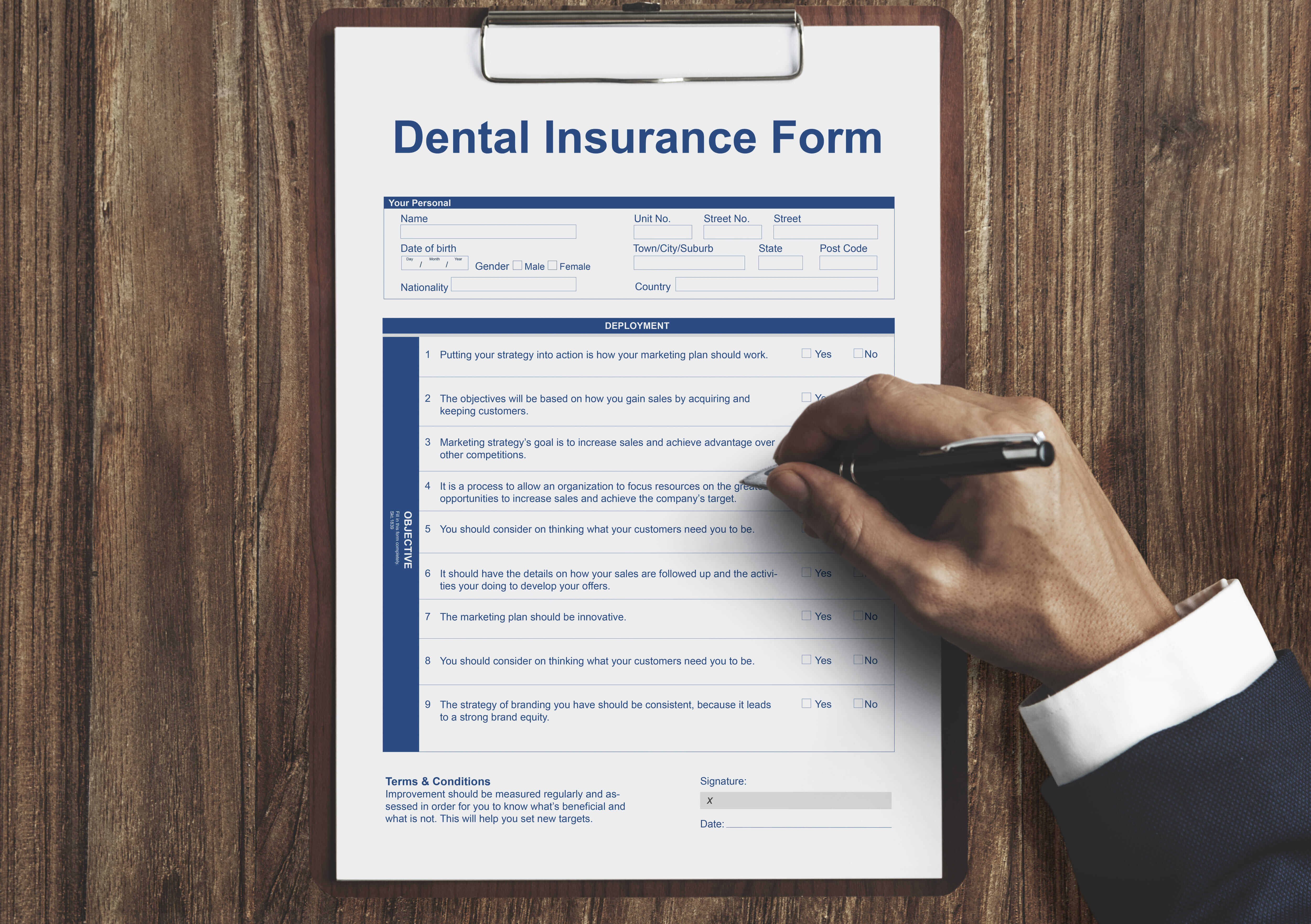What Credit Score Do You Need to Finance Dental Implants?

Financing dental implants can be a significant concern for many individuals, especially given the high out-of-pocket costs often involved. Although dental implants are widely regarded as the most reliable and enduring solution for tooth replacement, they can also be one of the most expensive. This article will examine the credit score requirements typically associated with financing dental implants, explore various financing methods, and outline considerations that can help borrowers secure the best possible terms.
Why Dental Implants Are Popular—and Often Expensive
Dental implants are considered by many professionals to be the “gold standard” for tooth replacement. Unlike dentures, which rest on the gums and may require adhesives, or bridges, which rely on existing teeth for support, dental implants are surgically placed into the jawbone. This approach yields a stable foundation for a replacement tooth (crown), helping preserve jaw structure and often providing a natural look and feel.
Despite their advantages, dental implants can be costly. According to the American Dental Association (ADA), a single implant and crown can cost between $1,500 and $3,000, or more if additional procedures like bone grafting or sinus lifts are needed. These supporting treatments can each add hundreds to thousands of dollars to the overall cost, depending on complexity and location.
Because insurance policies often provide limited coverage—or none at all—for dental implants, patients frequently turn to financing options. Among the most critical factors determining the accessibility of such financing is one’s credit score. The following sections break down the role of credit scores in dental implant financing and offer guidance on the most common financing methods.
Overview of U.S. Credit Scores
A credit score is a numerical representation of a person’s creditworthiness. It is derived from an individual’s credit history, payment patterns, outstanding debt, and various other financial factors. Lenders rely on credit scores to evaluate the risk of extending credit for medical procedures, including dental implants.
Credit scoring models—most notably FICO and VantageScore—rank scores along a continuum, typically from 300 to 850. While scoring ranges differ slightly among models, the following categories provide a general outline:
- Excellent (750+): Indicates a strong credit history and a low risk for lenders.
- Good (700–749): Suggests consistent, on-time payments and moderate debt levels.
- Fair (650–699): May indicate some missed payments or relatively higher utilization rates.
- Poor (580–649): Typically reflects multiple credit challenges, such as consistent late payments or elevated debt-to-credit ratios.
- Bad (<580): Suggests significant credit issues or a short credit history lacking positive records.
According to Experian, the average FICO score in the United States is around 714 (as of the latest available data). These averages help contextualize where an individual stands relative to the broader population.

Why Credit Scores Matter for Lenders
When determining loan eligibility, lenders consider a high credit score as indicative of strong financial responsibility. Borrowers with excellent scores generally receive lower interest rates, higher credit limits, and more favorable terms. Conversely, individuals with lower scores might be seen as higher-risk borrowers, often leading to higher interest rates, stricter requirements, or even denial of credit applications.
Typical Credit Score Ranges and Expected APRs
To offer more clarity on how credit scores might correlate with interest rates and credit limits, the table below provides approximate figures. These numbers can vary depending on market conditions, the lender’s specific underwriting standards, and individual financial profiles.
For borrowers seeking dental implant financing, having a higher credit score typically translates into lower interest rates and better loan terms, which can make the repayment process more manageable.
Recommended Credit Score for Dental Implant Financing
According to WalletHub, many lenders look for a minimum credit score of around 650 for dental procedures. Individuals with scores below 600 may encounter difficulties obtaining financing from mainstream sources such as major banks or specialized medical lending platforms. Although each lender has its own criteria, aiming for at least a fair credit score (650–699) improves your chances of approval and can reduce overall borrowing costs.
Having a credit score in the good or excellent range (700+) generally yields more favorable outcomes, including:
- Lower APRs (often in the 6% to 15% range)
- Higher credit limits
- Greater flexibility in repayment schedules
Average Costs and Key Pricing Variables for Dental Implants
While the base price for a single implant (the titanium or zirconia post plus the crown) can range between $1,500 and $3,000, multiple factors influence the total cost:

- Bone Grafts
- Required if the patient has insufficient jawbone density. These can add anywhere from $200 to $2,500, depending on the amount of grafting needed and the materials used.
- Sinus Lifts
- Necessary in cases where the sinus floor is too close to where the implants would be placed. This procedure can cost between $1,500 and $2,500.
- Extractions
- Removing damaged or decayed teeth may be required prior to implant placement. Simple extractions could be around $75–$300, while surgical extractions can range up to $650 or more.
- Implant Materials and Brands
- Some implant systems are more specialized and may carry higher material costs.
- Laboratory Fees
- Dental laboratories that manufacture custom abutments and crowns charge fees that vary based on materials, such as porcelain or ceramic.
- Dentist or Specialist Fees
- Providers’ prices can vary based on geographic location, expertise, and overhead costs.
Given these variables, the total expense can increase significantly. Financing often becomes necessary, particularly for patients lacking extensive insurance coverage or dealing with multiple implants.
Common Financing Options
Several paths exist for securing funding for dental implant procedures. Each option carries its own advantages and potential drawbacks.
1. Traditional Bank Loans
Process:
- Apply directly with a bank or credit union for a personal loan.
- Undergo a credit check.
- Upon approval, receive funds that can be used to pay the dental practice.
Benefits:
- Familiar, straightforward process.
- Potentially favorable terms if credit is strong.
- Personal relationship with a bank can sometimes ease the application process.
Considerations:
- May require excellent or good credit for optimal interest rates.
- Disbursement of funds can take several business days.
- Applicants with fair or poor credit may face denial or higher interest rates.
2. Waterfall Lending Platforms
Process:
- Submit a single application to an online platform that partners with multiple lenders.
- The platform “waterfalls” your application to various lenders, which each evaluate the risk.
- Choose the best offer from the approved options.
Benefits:
- Efficient way to compare different lenders with one application.
- Potential for competitive interest rates if you have multiple offers.
- Possible approvals even if credit is not in the excellent range.
Considerations:
- Some services may conduct a hard inquiry on your credit after preliminary offers.
- Approval times vary depending on lender requirements.
- Funds often need to be deposited into your account before you pay the dental provider.
3. Point-of-Sale (POS) Financing at the Dental Office

Process:
- The dental practice partners with a dental patient consumer financing company(e.g., FinMkt which is the best of both worlds POS & Waterfall).
- Application is completed onsite or online at the office.
- If approved, the lender pays the dentist directly.
Benefits:
- Quick approval process, often in a single office visit.
- Simplified transaction since funds go directly to the provider.
- Convenient for patients who prefer to avoid extensive research on lenders.
Considerations:
- Interest rates and terms can vary widely.
- Some financing programs require a minimum credit score in the fair or good range.
- Potential for deferred interest promotions, which can become expensive if the balance is not paid in full by the promotion’s end date.
Additional Financing Options
Subprime Lender Financing
Subprime lenders specialize in working with borrowers who have lower credit scores or limited credit histories. While this can provide an avenue for individuals with poor or bad credit, interest rates from subprime lenders can be significantly higher. Borrowers should carefully review the terms, including origination fees and penalties, to avoid overly burdensome repayment.
Secured vs. Unsecured Personal Loans
- Secured Loans: Require collateral, such as a vehicle or property, which can improve approval chances and lower interest rates. However, borrowers risk losing their collateral in the event of default.
- Unsecured Loans: Do not require collateral but often come with stricter credit requirements and higher rates, especially for those with fair or poor credit.
Credit Cards and Promotional Offers
Some individuals opt to use existing credit cards or apply for new cards with introductory 0% APR offers. While this may be suitable for those who can pay off the balance within the promotional period, high-interest charges can accrue if the balance remains after the introductory term.
Home Equity Line of Credit (HELOC)
For homeowners with sufficient equity, a HELOC can potentially offer a lower interest rate than some personal loans or credit cards. However, the property secures the loan, which poses a risk if the borrower cannot meet the repayment requirements.
Pay-Over-Time Plans from Specialized Lenders
As noted by Blyss Dental, certain dental practices work with specialized pay-over-time lenders who assess more than just a credit score. These lenders may use advanced data models to underwrite loans, offering flexibility for patients who might otherwise be declined by traditional lenders. Terms, rates, and down payment requirements vary, so it is important to review agreements thoroughly.
Typical Requirements for Dental Implant Financing
Lenders generally focus on the following factors when approving or denying financing:
- Credit Score – Most standard medical financing options require a minimum score of around 650.
- Credit History – Late payments, high utilization, or previous bankruptcies may affect approval.
- Income and Employment Stability – Verifiable income sources and stable employment history often improve loan eligibility.
- Debt-to-Income (DTI) Ratio – Lenders typically evaluate how much of your monthly income goes toward current debts. A lower DTI ratio is more favorable.
- Collateral (if applicable) – Secured loans involve pledging valuable assets to reduce lender risk.
Hidden Costs and Potential Pitfalls
Before committing to a financing plan, borrowers should carefully check for:
- Origination Fees
- Some lenders charge fees to process the loan. These can be a flat amount or a percentage of the principal.
- Late Payment Penalties
- Borrowers who miss due dates may be subject to penalties ranging from $15 to $50 or more, depending on the lender’s policy.
- Prepayment Penalties
- Although less common in personal loans, some lenders impose a fee for paying off the loan ahead of schedule.
- Variable vs. Fixed Interest Rates
- Variable rates can begin at a competitive level but fluctuate with market conditions, potentially increasing over time.
- Deferred Interest Promos
- Offers that advertise “no interest if paid in full within X months” may retroactively apply interest from the purchase date if the balance is not cleared by the end of the promotional period.
Understanding these terms helps avoid unexpected charges that can increase the overall cost of the dental implant procedure.
Realistic Examples
- Example of a Successful Financing Experience
- An individual with a 720 credit score and stable income may apply for a POS financing option at the dental office. Approval could come with an acceptable APR, offering a reasonable monthly payment structure spread over 24–36 months.
- Example of a High-Cost Financing Scenario
- A borrower with a 580 credit score might only qualify for a subprime loan with a high APR. This could significantly increase the total amount paid over the life of the loan. If even one payment is missed, penalty fees and compounding interest might further escalate the total cost.
These examples highlight the importance of planning and ensuring that monthly payments fit into a realistic budget.
Strategies for Improving Credit Scores Before Applying
If time permits, raising your credit score before applying for dental implant financing can result in better rates and terms. Consider the following steps:
- Check Your Credit Reports
- Regularly review reports from Experian and TransUnion for errors. Dispute inaccuracies that may be dragging down your score.
- Reduce Credit Card Balances
- Lowering your credit utilization ratio (the amount of available credit you are using) is a key factor in improving credit scores.
- Maintain On-Time Payments
- Payment history is the largest component of a FICO score. Even a single late payment can have an adverse effect.
- Avoid Opening or Closing Accounts
- New credit inquiries and changes in the average length of credit history can temporarily reduce your score.
- Communicate with Creditors
- If you have a late payment, some creditors may remove the negative mark upon request if you have been consistently responsible.
Step-by-Step Financing Plan for Dental Implants
- Obtain a Detailed Treatment Plan
- Consult with your dentist or specialist to determine the total cost, including potential add-ons like bone grafts or sinus lifts.
- Review Insurance Policies
- While many dental plans do not fully cover implants, some may partially offset costs, especially if the need is due to a medical condition or injury.
- Assess Your Financial Situation
- Examine your credit score, monthly budget, and available savings to determine how much you can afford in monthly payments.
- Compare Multiple Financing Options
- Evaluate interest rates, fees, and approval requirements from traditional banks, waterfall lending platforms, and POS financing solutions.
- Seek Pre-Approval
- Many lenders offer pre-qualification processes involving soft credit checks, allowing you to gauge potential rates without affecting your credit score.
- Review Contract Details
- Thoroughly read the loan agreement. Pay attention to APR, terms, penalties, and any promotional periods.
- Select the Best Offer and Finalize
- Once approved, decide which lender’s terms align best with your budget. Finalize the paperwork and confirm the funding timeline.
- Schedule and Undergo the Procedure
- Coordinate the implant procedure date with your dentist after confirming the receipt of funds or the direct payment arrangement.
- Maintain Timely Repayments
- Ensure all payments are made on or before the due date to protect your credit score and avoid fees.
Conclusion: What Credit Score Do You Need to Finance Dental Implants?
Dental implants can be a significant investment, with costs ranging from $1,500 to $3,000 per tooth (or more if additional treatments are required). Many people turn to financing to make these procedures more accessible. A credit score of 650 or higher typically improves approval odds and secures more favorable terms, although individuals with lower scores may find solutions through subprime lenders or alternative financing arrangements.
When choosing a financing method, it is important to consider:
- Interest rates and fees
- Approval requirements
- Repayment schedules
- Potential promotional or deferred interest terms
Additionally, improving your credit score before applying can lead to more competitive rates and reduced overall costs. Whichever financing route you choose, carefully review all documents to ensure you understand your obligations and can manage the monthly payments. By taking these steps, you can secure the funding required for dental implants and, ultimately, work toward a healthier and more confident smile.

















